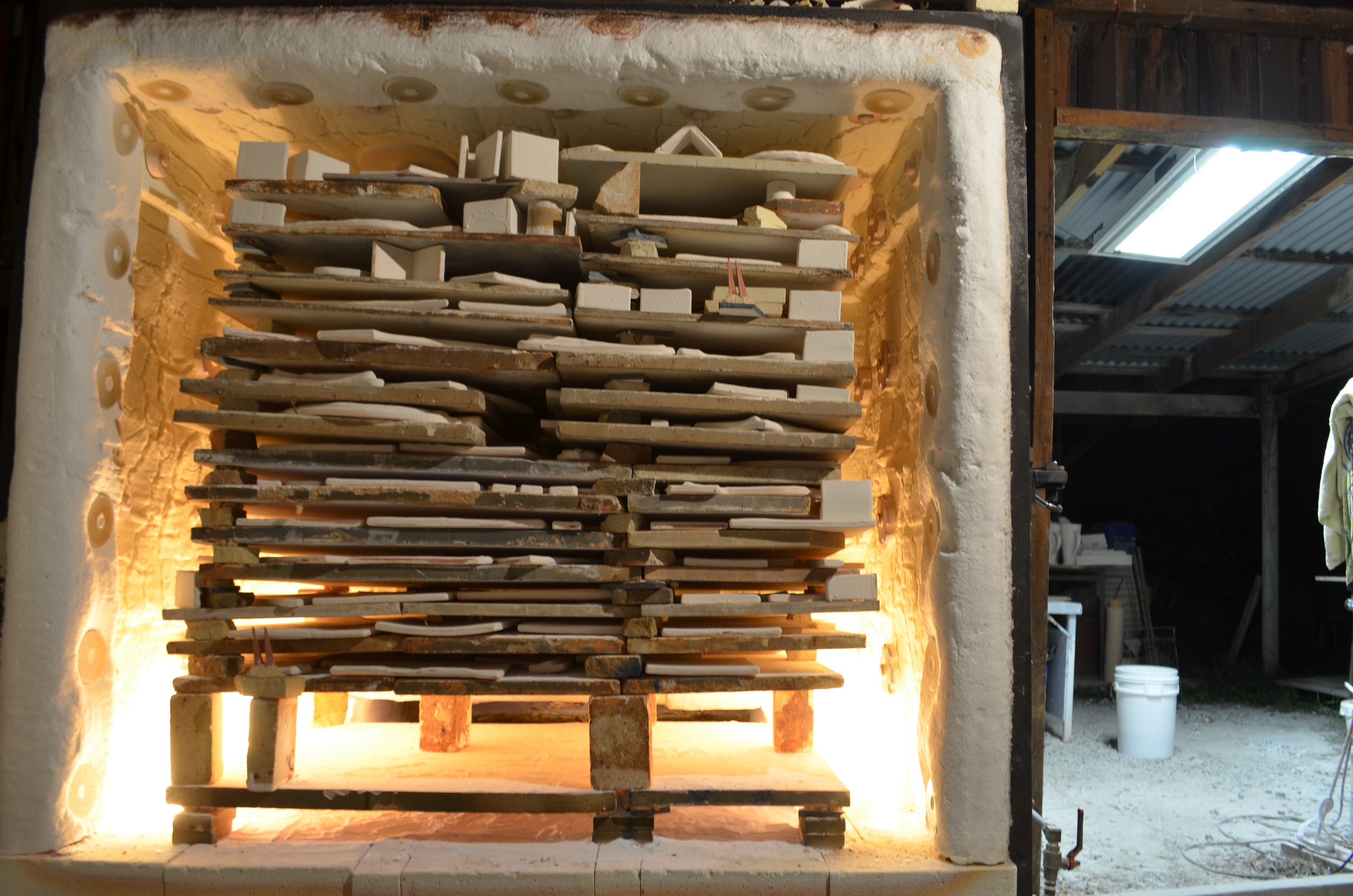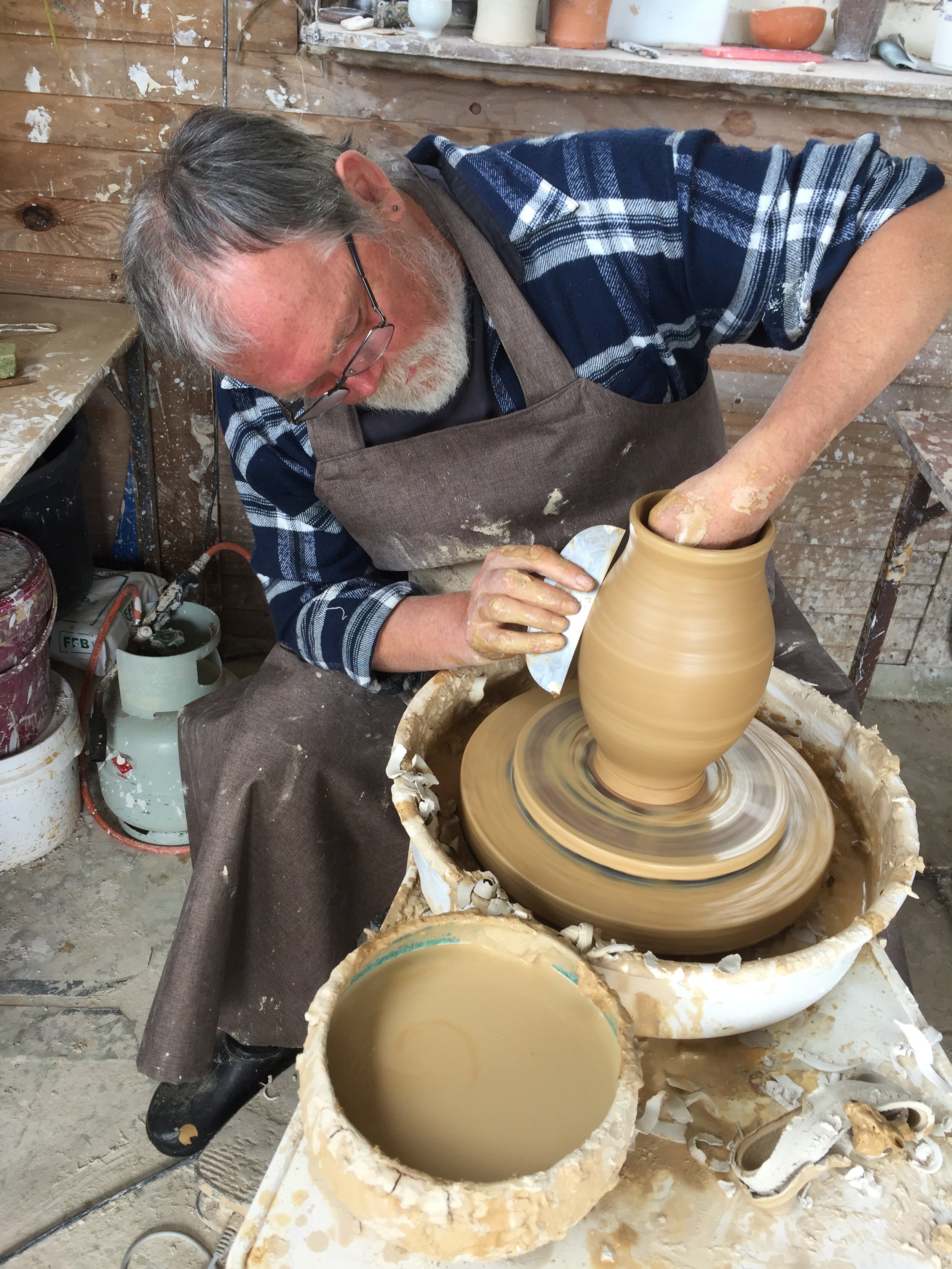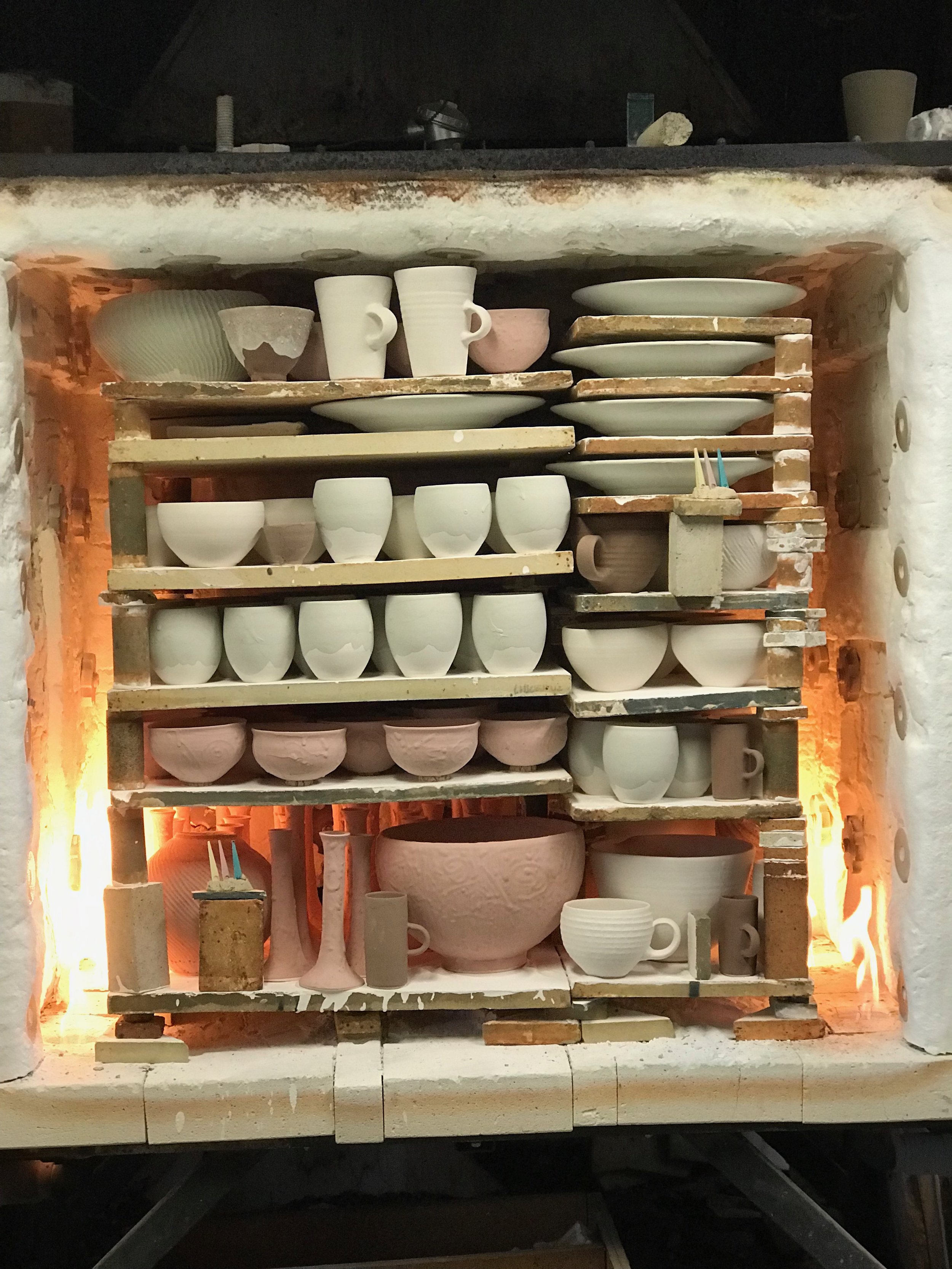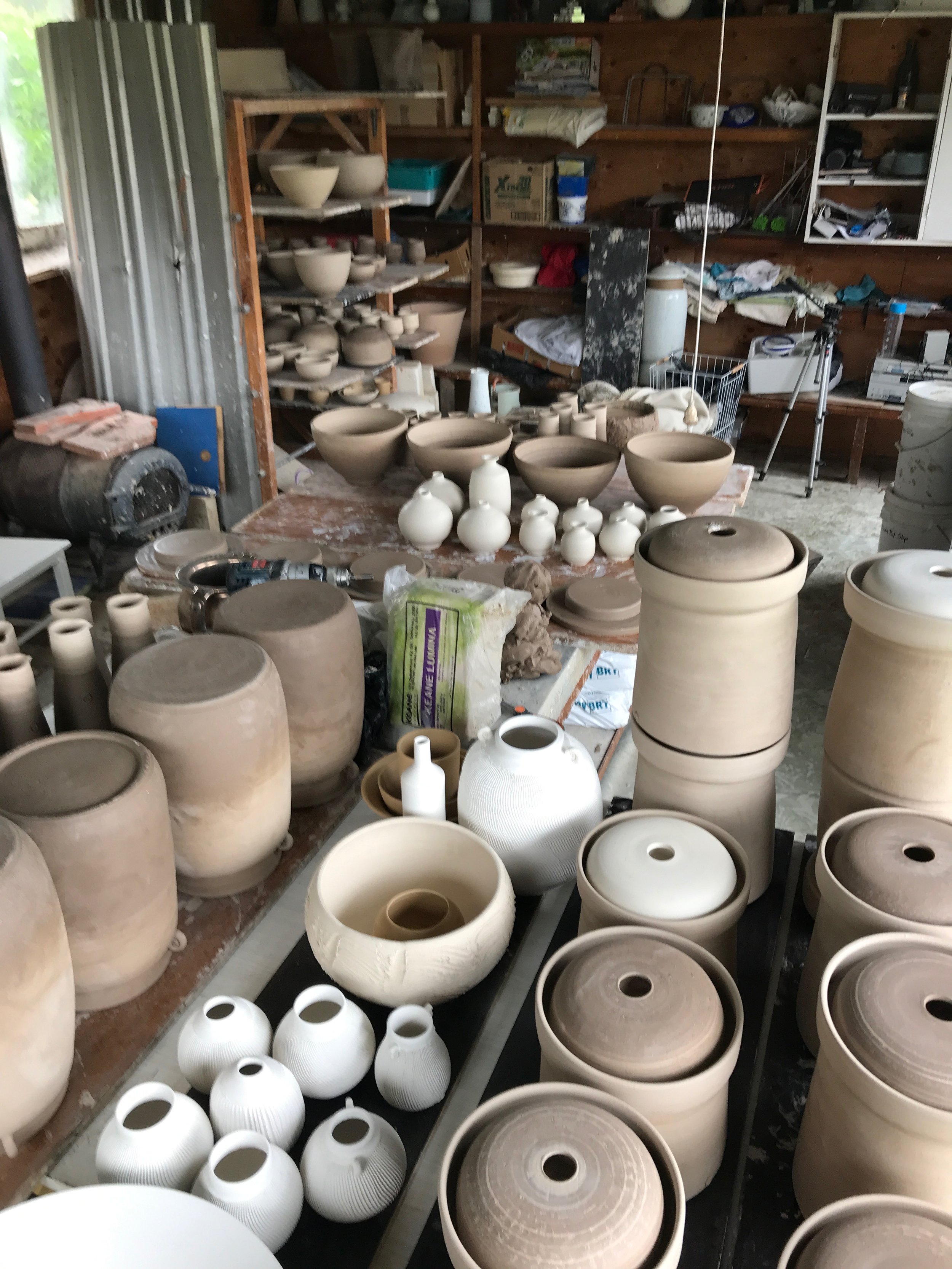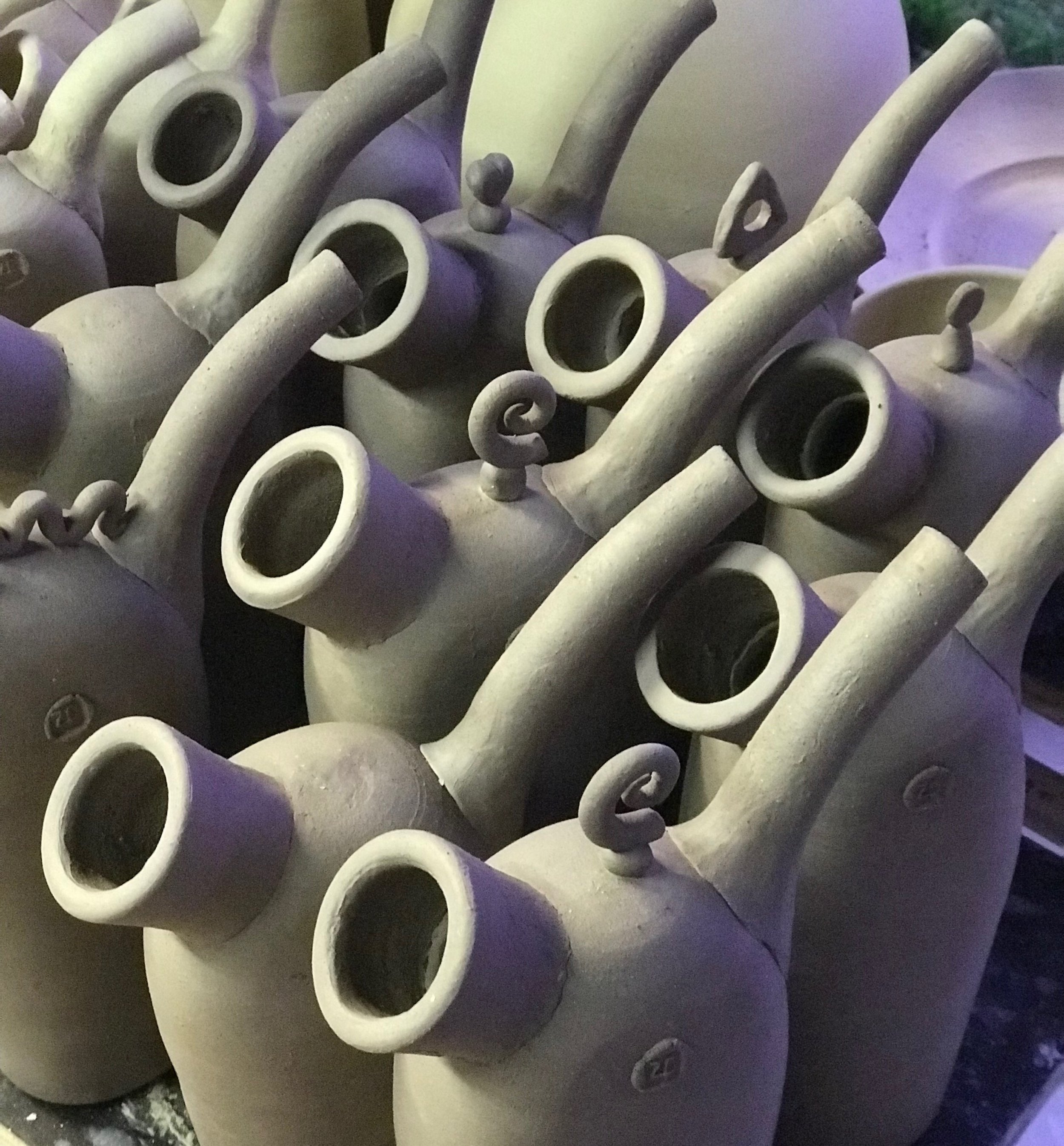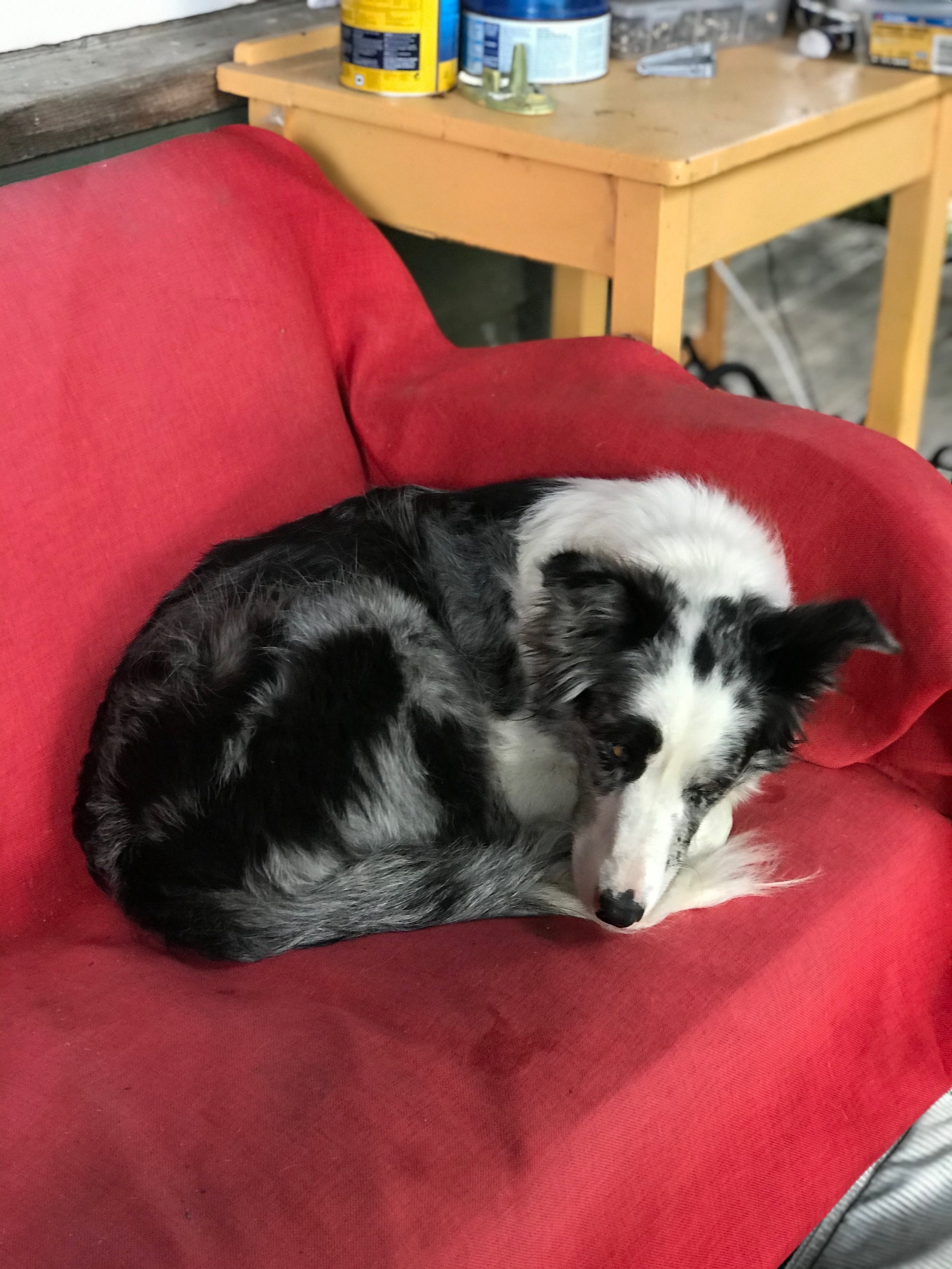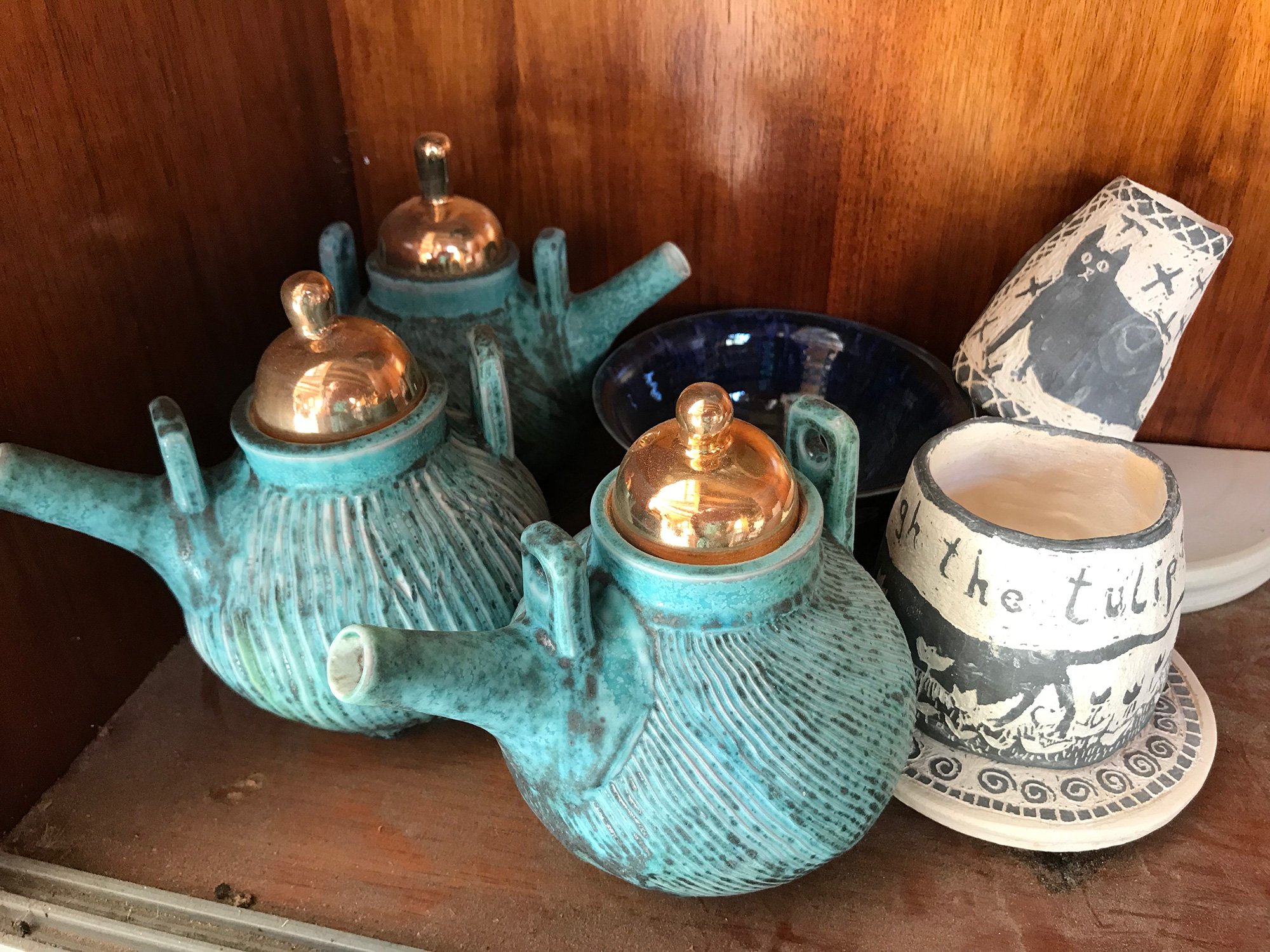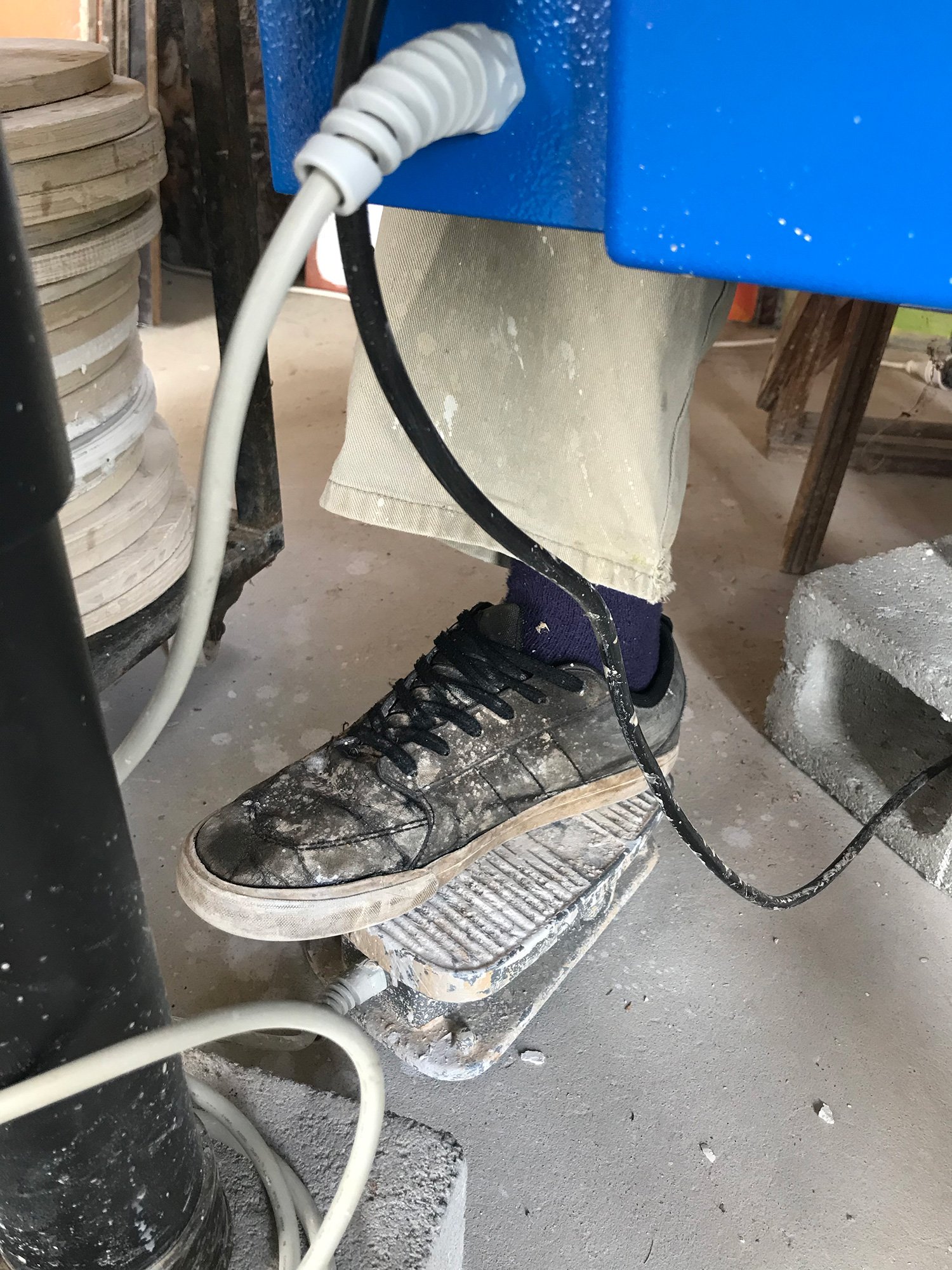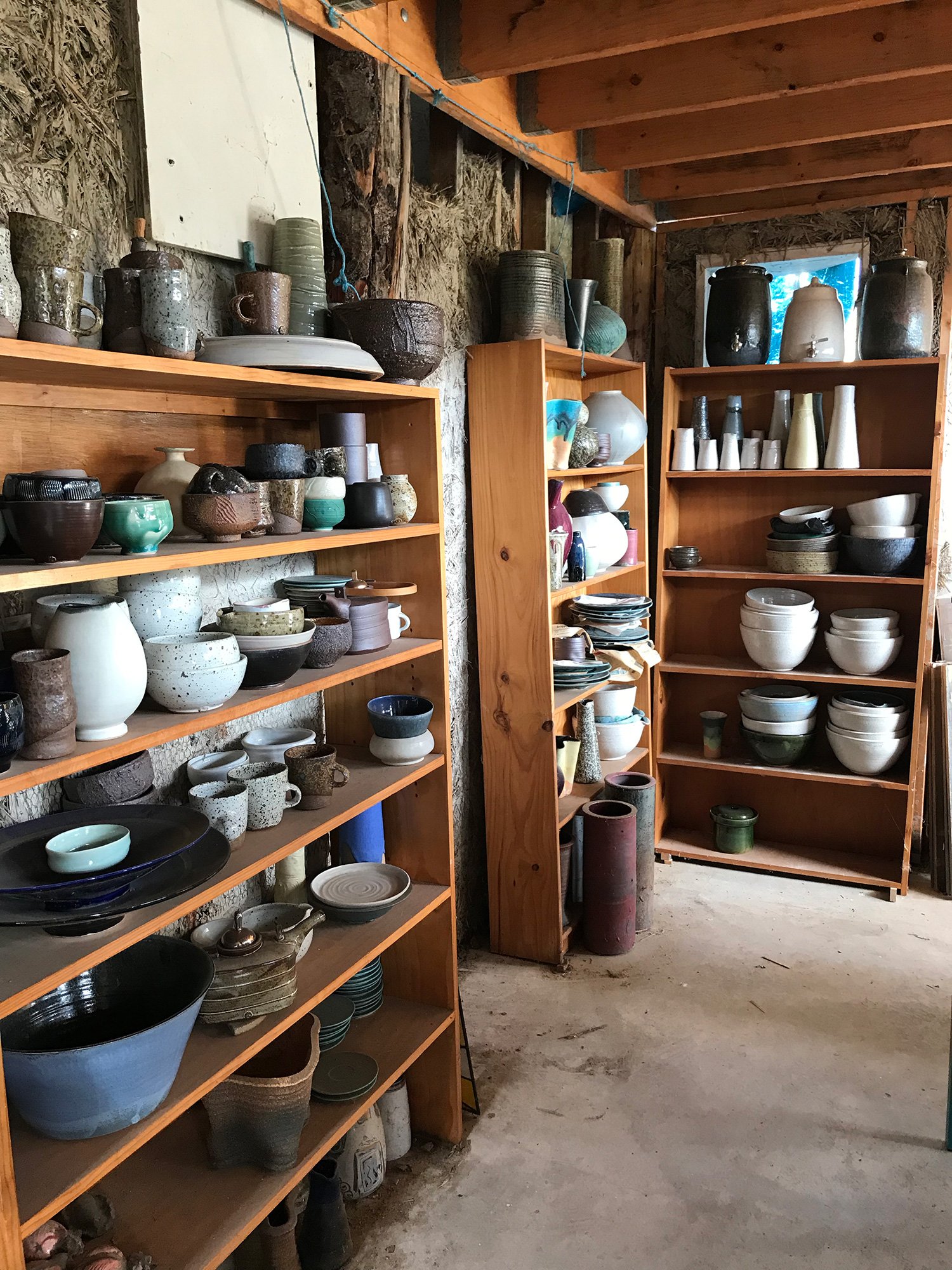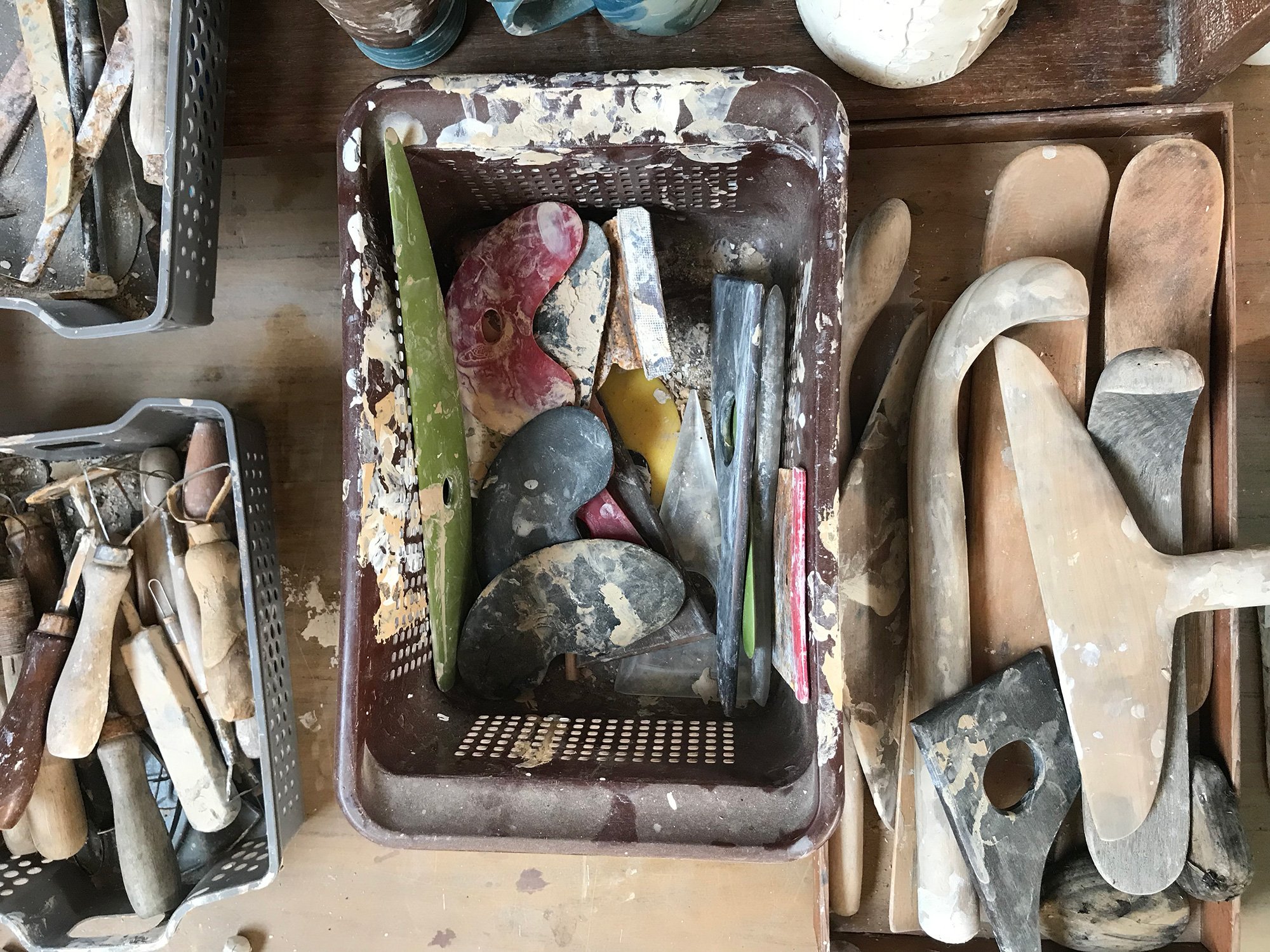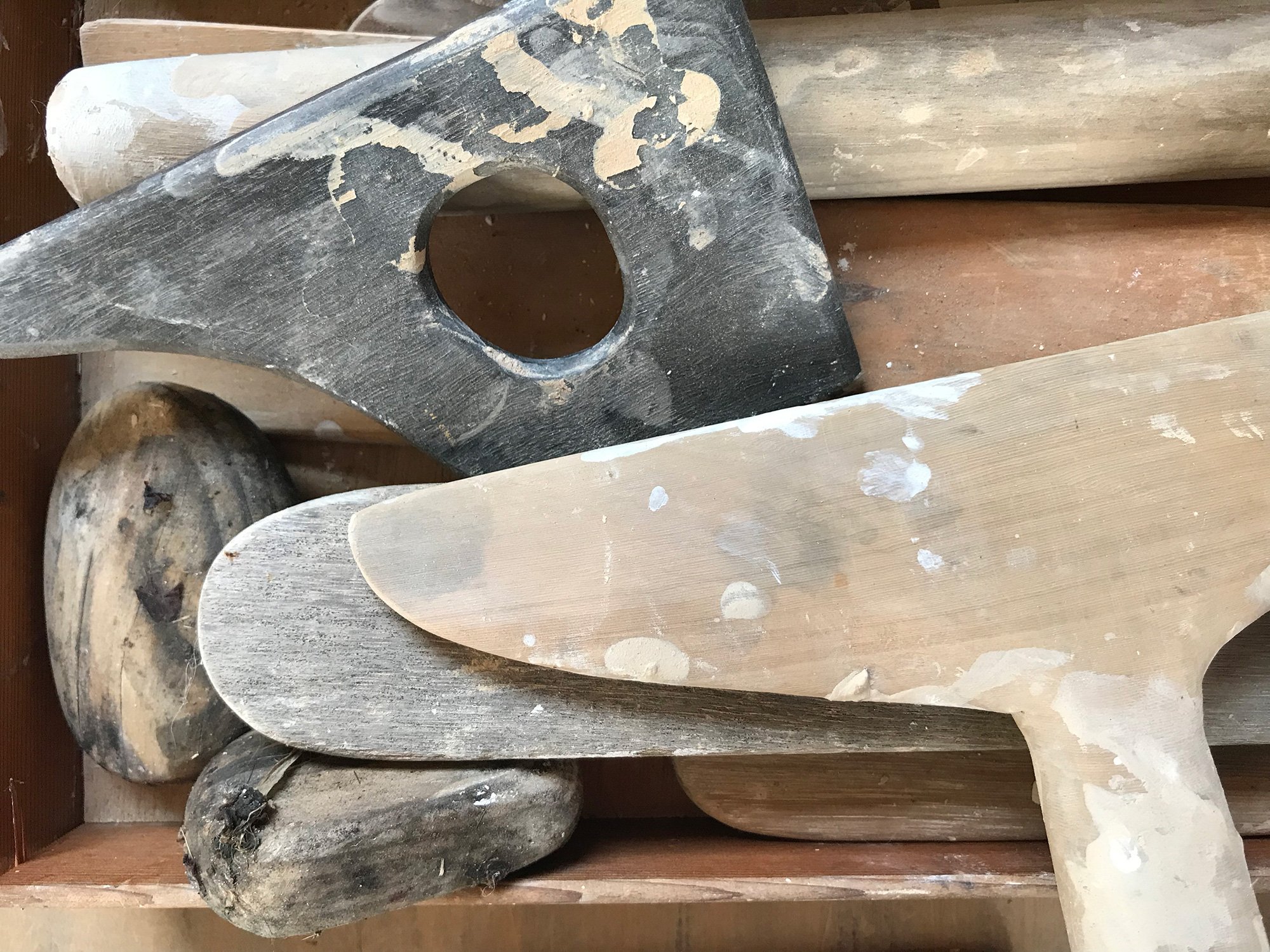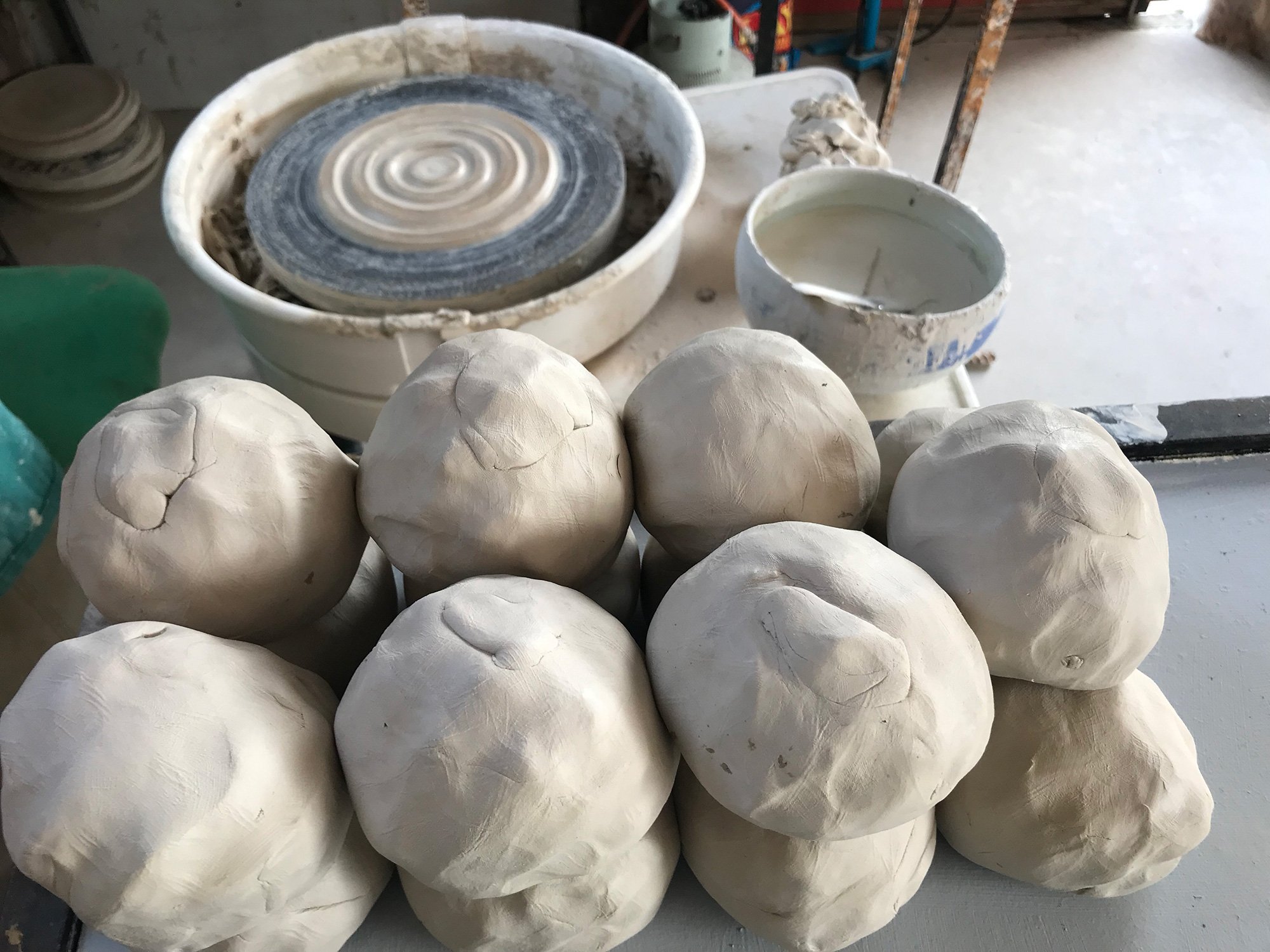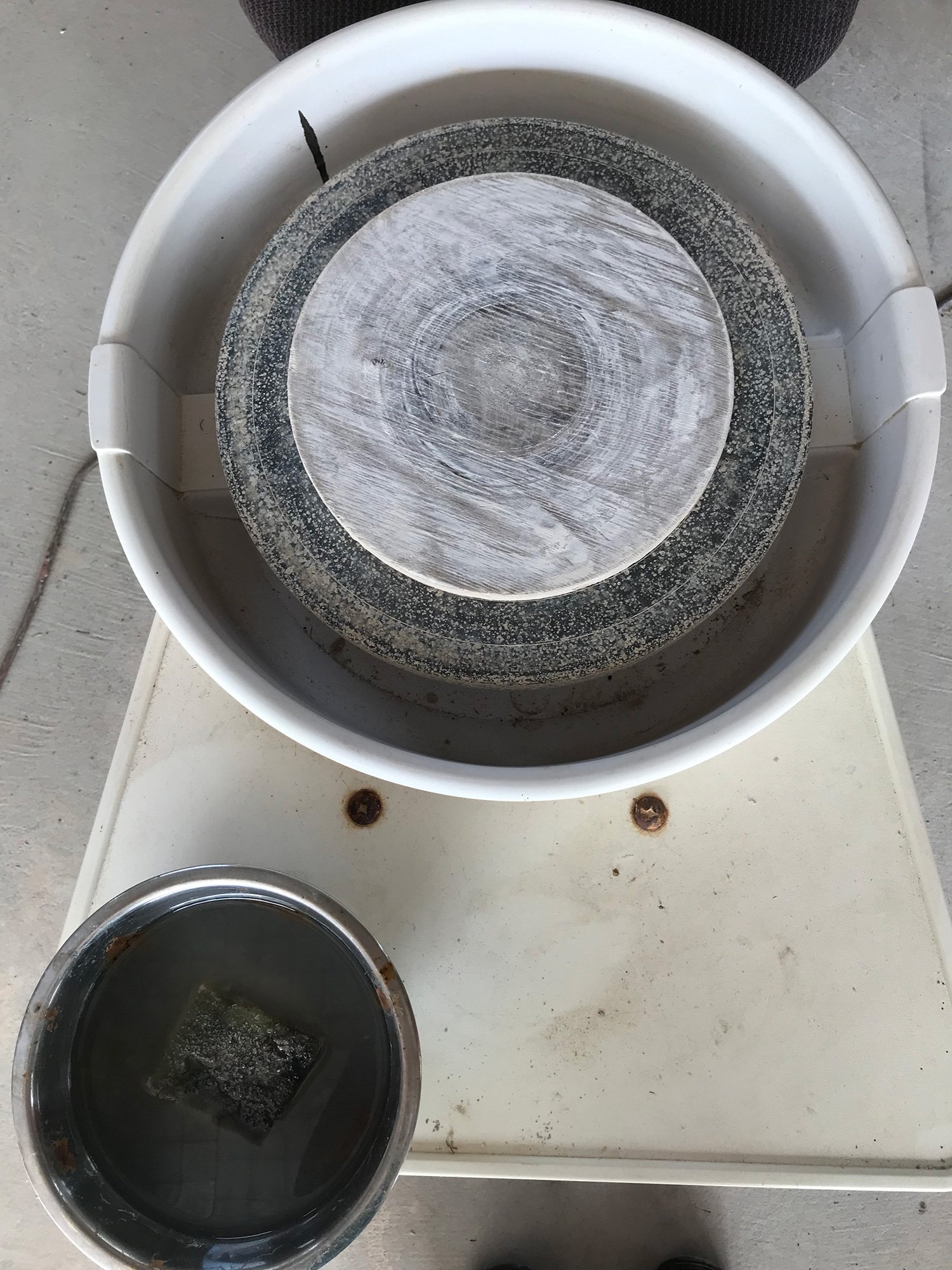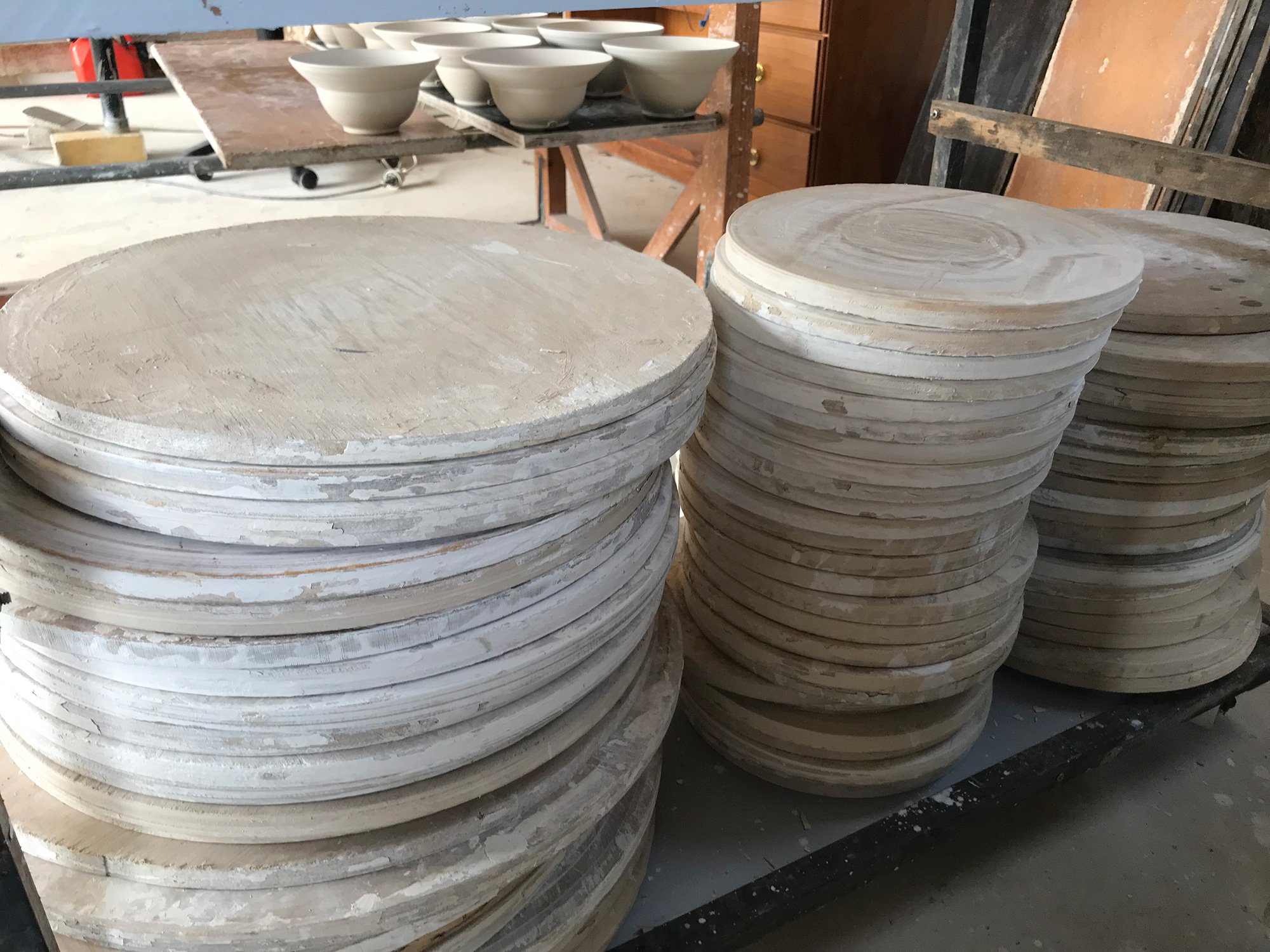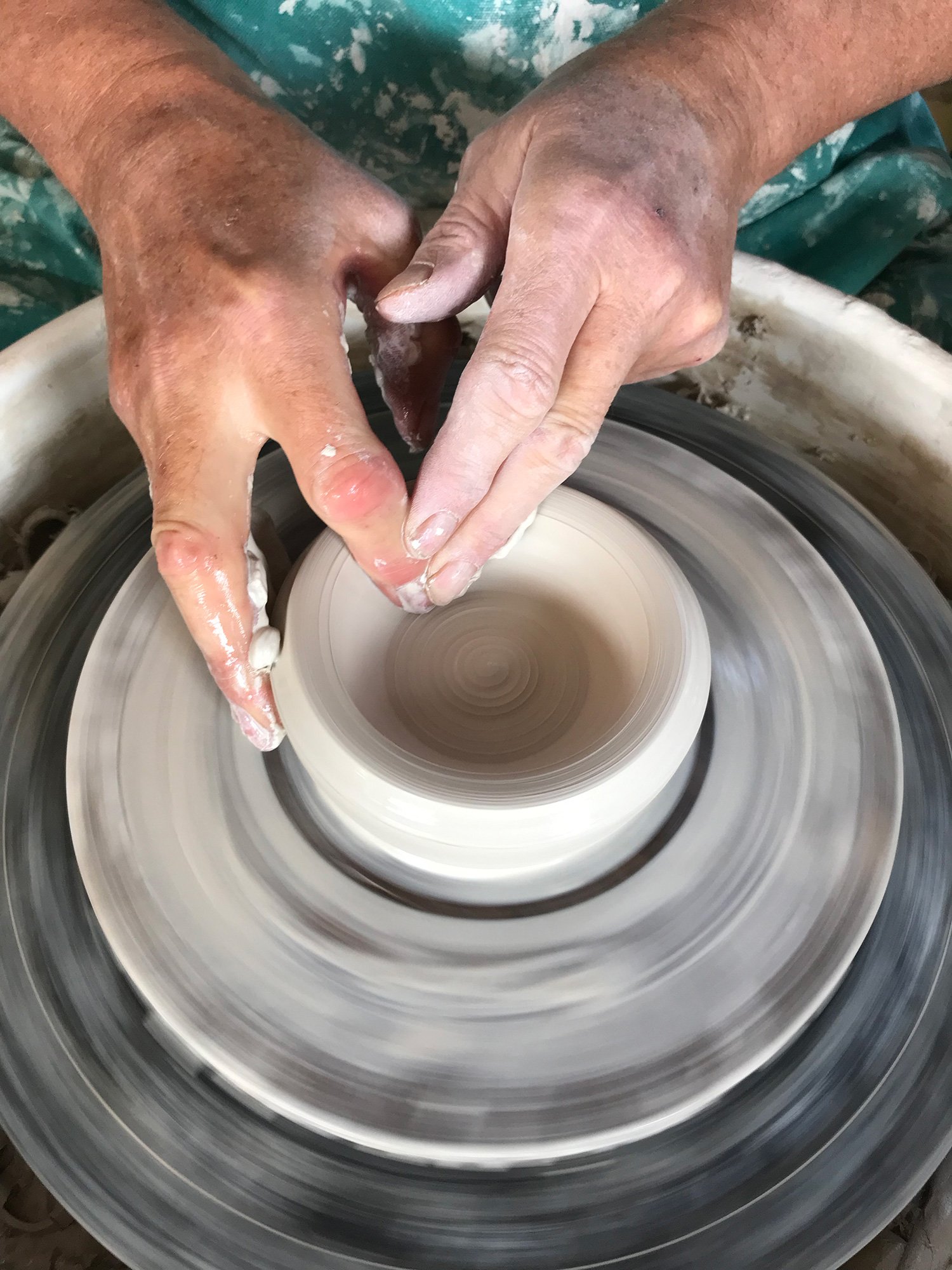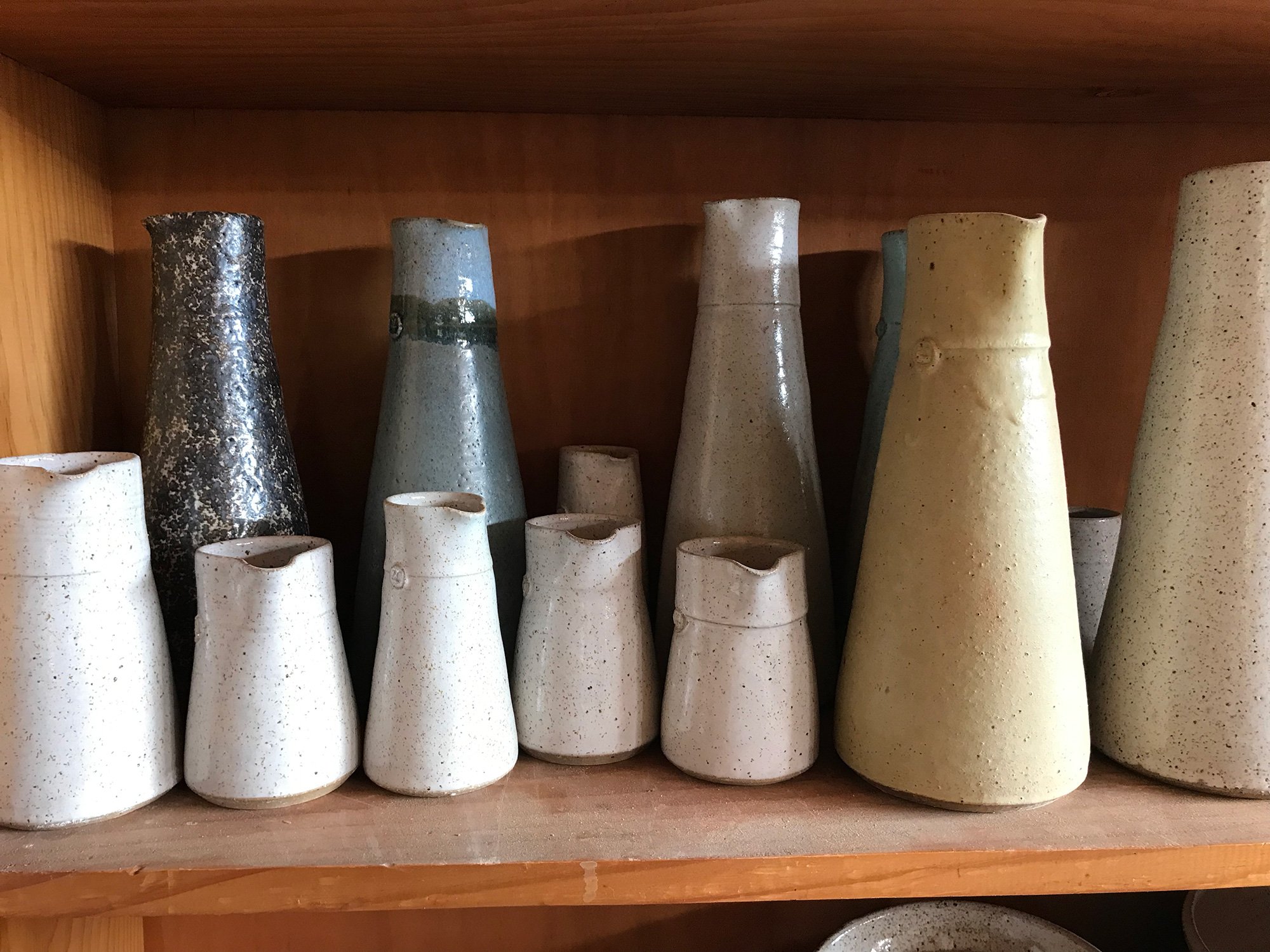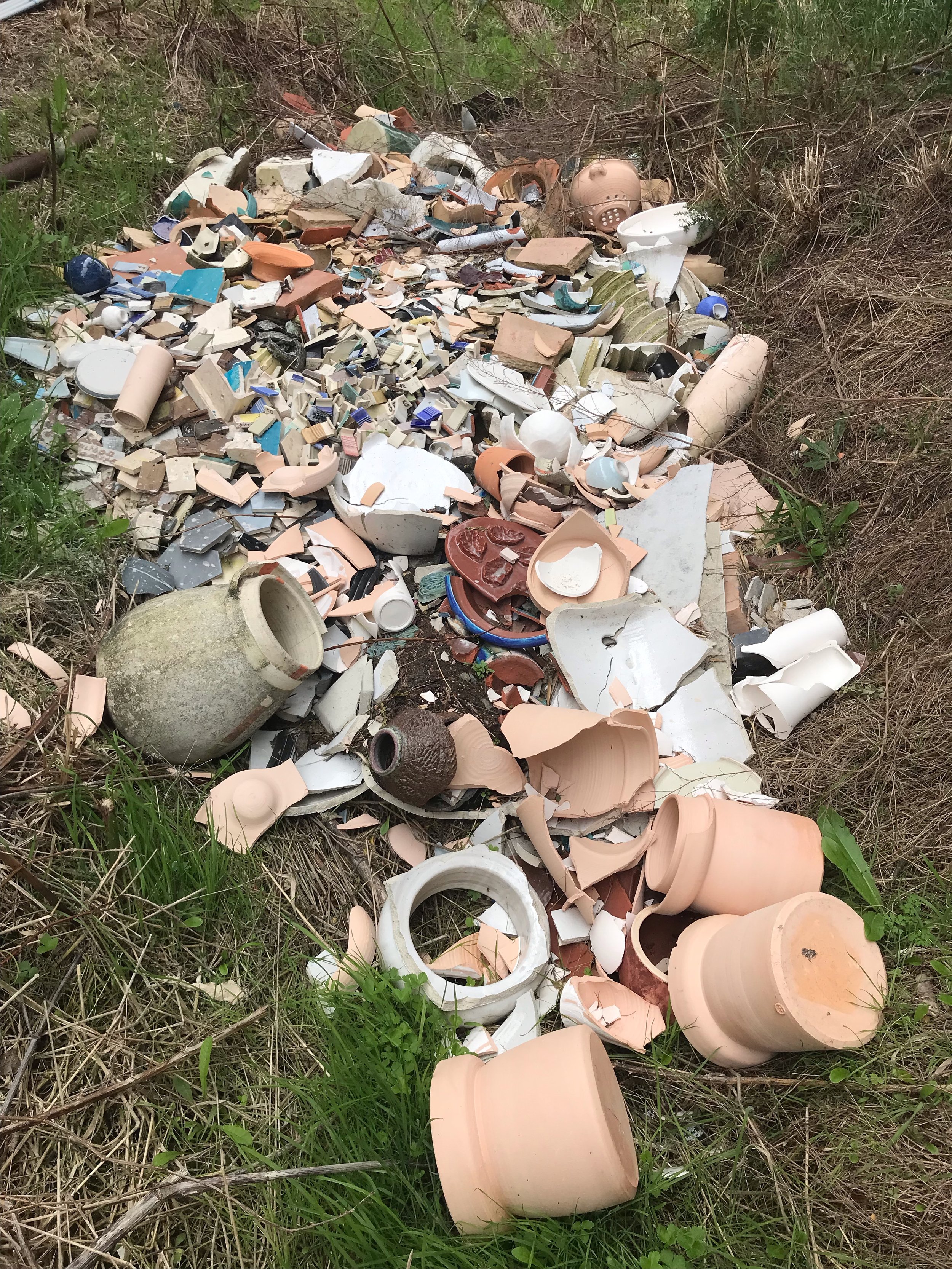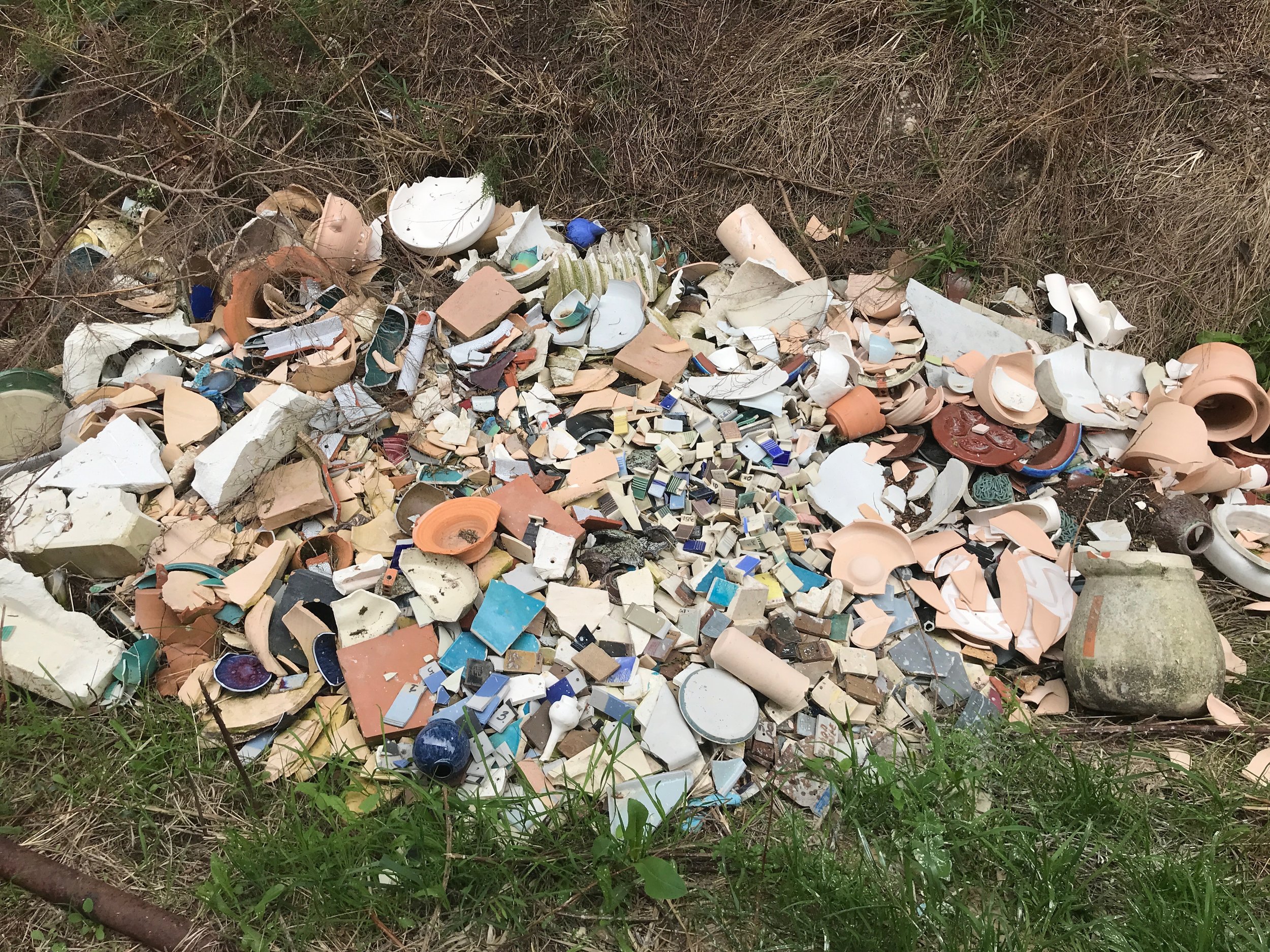
Studio
Set in southern Tasmania, in Glen Huon…
“Making pots comes as second nature to me. Consequently, I don’t do preparations, don’t draw, make no plans whatsoever. I don’t get inspired by nature, am not trying to rediscover my identity, draw attention to history or uncover past injustices, and I don’t aim at any influence on the current goings on — for me clay is a self-closed system. I just seem to get down to it and make.”
Where pots are born
Faludi doesn't count as he prepares a wad of clay before placing it, perfectly centred, on his potting wheel. But some of his colleagues do. A Jesuit monk stationed in eighteenth century China came up with the number 72, the number of steps required to make a ceramic object from start to finish by hand. Not for the impatient.
It's an intriguing process for those who have never watched a potter at work, following techniques largely centuries old and deeply mired in tradition, culture, spirituality and ethnicity. Tried and proven. The only significant variation has been inevitable industrialisation where identical ceramic objects are spewed out of machines and loaded into trucks bound for warehouses not long after.
But, for the studio potter, clonal perfection is not the aim, more, similarity based on functionality, aesthetics, style and the natural reflection of the maker. Proudly imperfect. As famed English potter Bernard Leach wrote in “A Potter's Book”:
“Technique is a means to an end. It is not the end in itself. If the end is achieved, and a fine pot comes out of the kiln, let us not be hypercritical about fortuitous blemishes. Some of the most beautiful pots in the world are full of technical imperfections.”
A potters' studio is littered with tools, some weird, some banal, some bought, many made to suit the particular techniques of the individual. Others, such as kilns, extruders, wheels and clay mixers are special to the craft and major investments.
As with many artisans and artists a potters' studio is somewhat shambolic and rarely tidy. Faludi's is no exception. Classical music always fills the space, people drop in for a chat and/or his home-made cider, his three-legged cat treads masterfully between the freshly-made objects and two dogs are inevitably sprawled snoozing on the floor, somehow, always in the way. In winter the wood burner blazes, in summer all doors and windows are gaping and gasping for fresh air.
From that comfy collage are born distinctive works only he can fashion, works as different from each other as his days, friends and moods are.
“Let's make some nice pots and then I'll cook some lunch,” Faludi says to whoever may be sharing a wheel beside him. As he says, lifestyle is everything.






